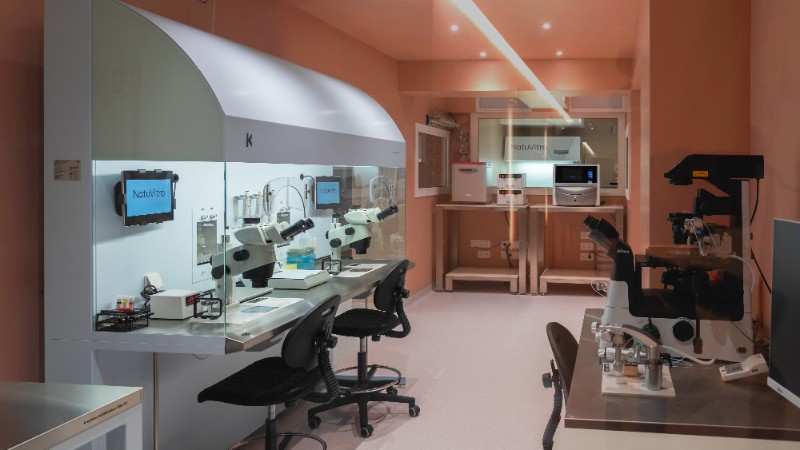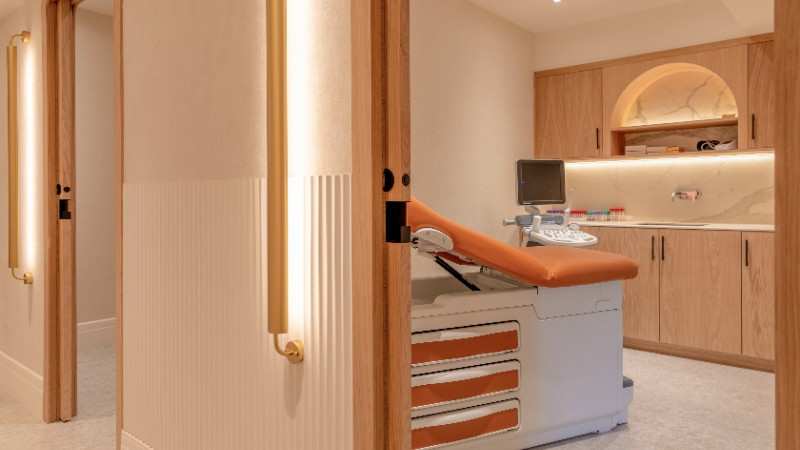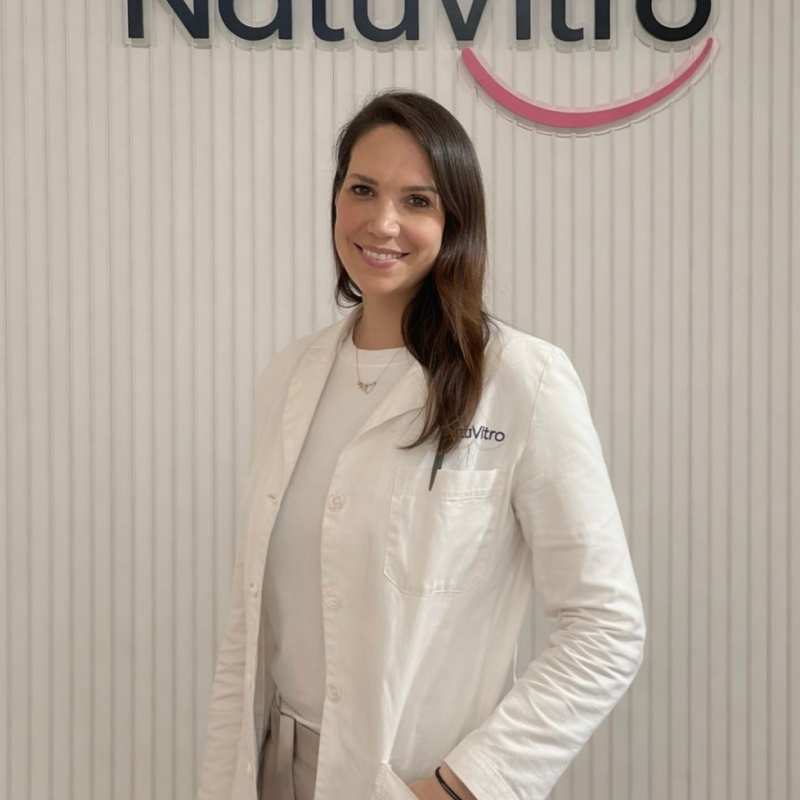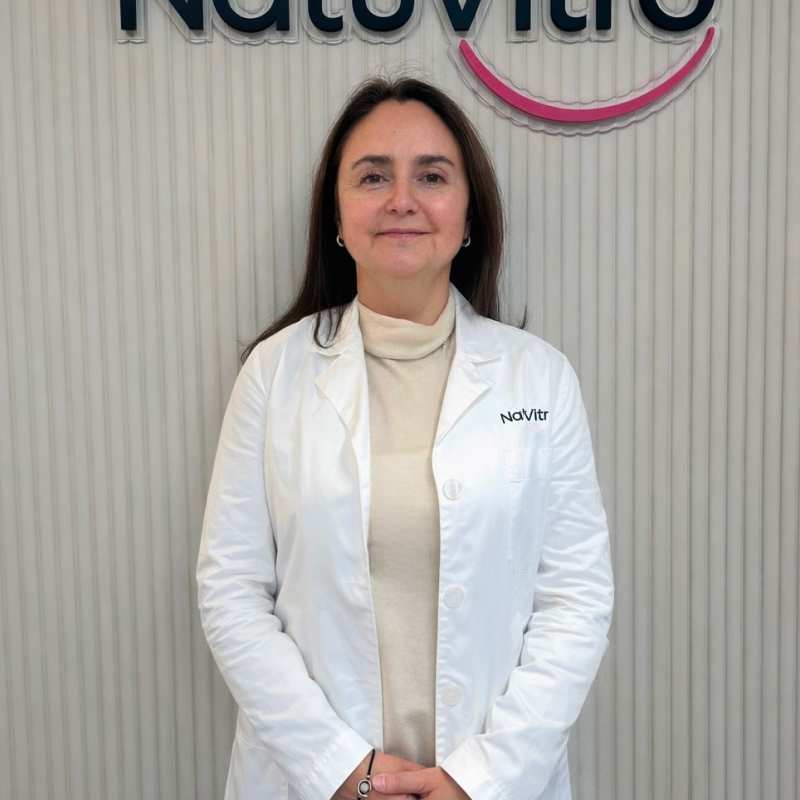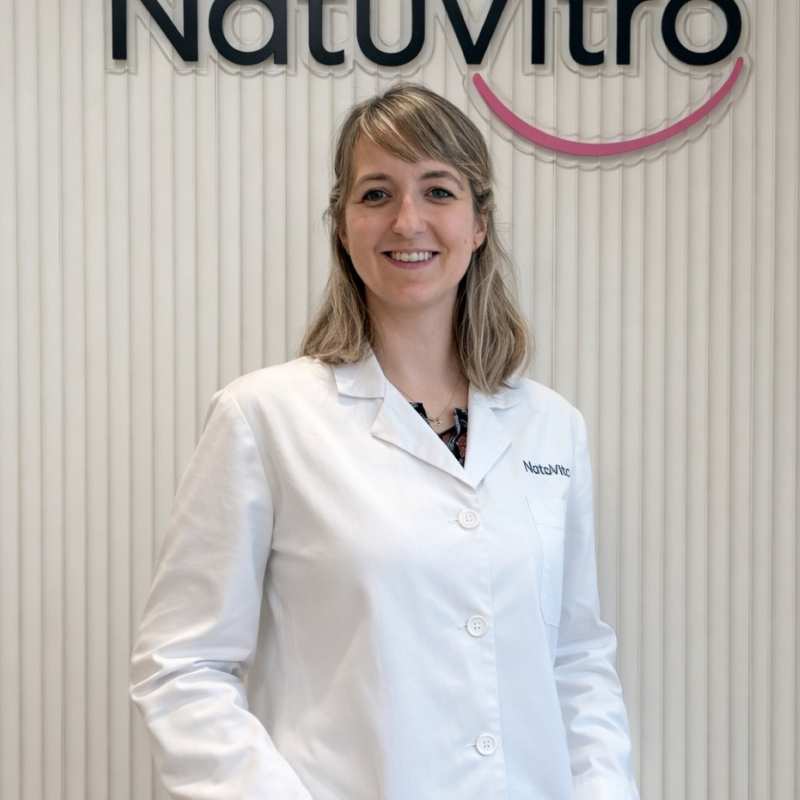
Age is a fundamental factor that profoundly shapes a woman's fertility journey. As women age, their reproductive health undergoes a series of intricate changes, significantly affecting their ability to conceive and sustain a pregnancy. In this section, we will delve deeper into the multifaceted effects of aging on ovarian reserve, anti-Müllerian hormone (AMH) levels, endometrial health, and the composition of the vaginal microbiome.
Ovarian Reserve and Age
Ovarian reserve is a critical aspect of female fertility, encompassing the quantity and quality of a woman's remaining eggs. The dynamic relationship between ovarian reserve and age is as follows:
Declining Egg Quantity: Women are born with a finite number of eggs, and this number steadily diminishes as they age. The most significant decline in egg quantity typically occurs after the age of 35, with a more pronounced drop occurring after the age of 40. This phenomenon, known as "diminished ovarian reserve," is a key contributor to age-related fertility decline.
Ovarian Reserve by Age:
At 20: A woman in her early 20s may have around 1-2 million eggs in her ovaries.
At 25: By age 25, the ovarian reserve might decrease slightly to approximately 800,000 to 1 million eggs.
At 30: At age 30, the ovarian reserve continues to decline, with roughly 300,000 to 400,000 eggs remaining.
At 35: By age 35, the decline becomes more noticeable, and a woman may have about 100,000 to 200,000 eggs.
At 40: At 40, the ovarian reserve significantly diminishes, with an estimated 20,000 to 40,000 eggs remaining.
At 45: By age 45, the ovarian reserve is considerably depleted, and there might be as few as 1,000 to 2,000 eggs left.
Reduced Egg Quality: Alongside a decrease in egg quantity, there is also a decline in egg quality with age. Older eggs are more likely to have chromosomal abnormalities, which can result in infertility, increased risk of miscarriage, and a higher likelihood of having a child with chromosomal disorders such as Down syndrome.
AMH Levels and Age
Anti-Müllerian hormone (AMH) serves as a valuable marker for assessing a woman's ovarian reserve. The relationship between AMH levels and age unfolds as follows:
Youthful Abundance: In the early stages of a woman's reproductive life, AMH levels are generally high. This reflects a robust ovarian reserve and a high likelihood of successful conception.
Decline in AMH: As women age, their AMH levels decline progressively. This reduction in AMH correlates with the decreasing quantity and quality of eggs, especially after the age of 30. In the late 30s and early 40s, this decline becomes more rapid, underlining the importance of considering fertility preservation options for women wishing to delay motherhood.
AMH Levels by Age:
AMH levels are typically measured in nanograms per milliliter (ng/mL).
At 20: AMH levels in a woman's early 20s are usually higher, ranging from 2.0 to 4.0 ng/mL.
At 25: By age 25, AMH levels might still be relatively high, typically between 1.5 and 3.0 ng/mL.
At 30: At age 30, AMH levels begin to decrease, often falling within the range of 1.0 to 2.0 ng/mL.
At 35: By age 35, AMH levels usually decrease further, ranging from 0.5 to 1.5 ng/mL.
At 40: At 40, AMH levels typically continue to decline, often falling below 1.0 ng/mL, with some women having levels closer to 0.5 ng/mL or lower.
At 45: By age 45, AMH levels are generally very low, often less than 0.1 ng/mL, indicating a significantly reduced ovarian reserve.
Endometrial Changes with Age
The endometrium, the inner lining of the uterus, plays a pivotal role in the success of embryo implantation and pregnancy. Age-related alterations in the endometrium can have far-reaching implications for fertility:
Thinning Endometrial Lining: One age-related change often observed is the gradual thinning of the endometrial lining. This process can render the endometrium less receptive to embryo implantation, increasing the risk of implantation failure and miscarriage.
Endometrial Thickness by Age:
Endometrial thickness is measured in millimeters (mm).
At 20: In the early 20s, the average endometrial thickness can range from 8 mm to 13 mm.
At 25: By age 25, the endometrial thickness typically remains in the same range, averaging between 8 mm and 13 mm.
At 30: At age 30, the average endometrial thickness remains relatively consistent, ranging from 8 mm to 12 mm.
At 35: By age 35, the average endometrial thickness might start to show slight variations, with an average range of 7 mm to 11 mm.
At 40: At 40, endometrial thickness might continue to vary but usually stays within the range of 6 mm to 10 mm.
At 45: By age 45, endometrial thickness can become more unpredictable, with potential averages ranging from 5 mm to 9 mm.
Hormonal Shifts: Hormone levels, particularly estrogen and progesterone, undergo fluctuations as women age. These hormonal shifts can have a direct impact on the health and receptivity of the endometrial tissue. The perimenopausal period, characterized by irregular menstrual cycles, is often accompanied by hormonal imbalances.
Effect on Assisted Reproductive Technologies: Older women undergoing fertility treatments, such as in vitro fertilization (IVF), may require higher doses of hormones to prepare the endometrium for embryo transfer. The response to hormonal stimulation can vary considerably among individuals.
Vaginal Microbiome and Age
The vaginal microbiome is a complex ecosystem comprising various microorganisms, including bacteria. Changes in the composition of the vaginal microbiome with age can have significant implications for reproductive health:
Age-Related Shifts: The vaginal microbiome is not static and can undergo alterations as a woman ages. These shifts may include changes in the relative abundance of specific bacterial species. In some cases, these shifts may lead to imbalances, such as bacterial vaginosis.
Impact on Reproductive Health: An imbalanced vaginal microbiome can increase the risk of infections and inflammation within the reproductive tract. These disruptions can potentially affect fertility and the success of assisted reproductive treatments, highlighting the importance of maintaining a healthy vaginal microbiome.
Vaginal Health Matters: Vaginal health is integral to overall reproductive well-being. Seeking medical advice in the presence of any imbalances, infections, or discomfort is crucial, especially for women actively trying to conceive.
In conclusion, age is a pivotal factor in a woman's fertility journey, exerting a profound influence on ovarian reserve, AMH levels, endometrial health, and the composition of the vaginal microbiome. These age-related changes underscore the importance of early family planning, open conversations with healthcare professionals, and, when necessary, exploring fertility preservation options. Navigating the complexities of aging and fertility requires a holistic approach that takes into account both individual circumstances and the broader trends associated with the passage of time.
If you're facing challenges on your journey to becoming pregnant, it's crucial not to lose hope. At Natuvitro, we understand that fertility struggles can be daunting, but we're here to support and guide you every step of the way. Whether your difficulties are age-related, connected to genetics, or stem from other health conditions, we have a wealth of resources and expertise to uncover the underlying reasons and formulate a personalized plan to help you build the family you've been dreaming of. Don't hesitate; reach out to us today, and let's embark on this journey together towards a brighter and more hopeful future.
Our experts are ready to examine your case history, clarify your choices, and address every question you have.
Don't wait to make informed decisions – your personalized guidance awaits!
- Spain (España)+34
- France (La France)+33
- Italy (Italia)+39
- United Kingdom+44
- United States+1
- Belgium (België)+32
- Switzerland (Schweiz/Suisse)+41
- Germany (Deutschland)+49
- Netherlands (Nederland)+31
- Afghanistan (افغانستان)+93
- Albania (Shqipëri)+355
- Algeria (الجزائر)+213
- American Samoa+1
- Andorra+376
- Angola+244
- Anguilla+1
- Antigua and Barbuda+1
- Argentina+54
- Armenia (Հայաստան)+374
- Aruba+297
- Ascension Island+247
- Australia+61
- Austria (Österreich)+43
- Azerbaijan (Azərbaycan)+994
- Bahamas+1
- Bahrain (البحرين)+973
- Bangladesh (বাংলাদেশ)+880
- Barbados+1
- Belarus (Беларусь)+375
- Belize+501
- Benin (Bénin)+229
- Bermuda+1
- Bhutan (འབྲུག)+975
- Bolivia+591
- Bosnia and Herzegovina (Босна и Херцеговина)+387
- Botswana+267
- Brazil (Brasil)+55
- British Indian Ocean Territory+246
- British Virgin Islands+1
- Brunei+673
- Bulgaria (България)+359
- Burkina Faso+226
- Burundi (Uburundi)+257
- Cambodia (កម្ពុជា)+855
- Cameroon (Cameroun)+237
- Canada+1
- Cape Verde (Kabu Verdi)+238
- Caribbean Netherlands+599
- Cayman Islands+1
- Central African Republic (République centrafricaine)+236
- Chad (Tchad)+235
- Chile+56
- China (中国)+86
- Christmas Island+61
- Cocos (Keeling) Islands+61
- Colombia+57
- Comoros (جزر القمر)+269
- Congo (DRC) (Jamhuri ya Kidemokrasia ya Kongo)+243
- Congo (Republic) (Congo-Brazzaville)+242
- Cook Islands+682
- Costa Rica+506
- Côte d’Ivoire+225
- Croatia (Hrvatska)+385
- Cuba+53
- Curaçao+599
- Cyprus (Κύπρος)+357
- Czech Republic (Česká republika)+420
- Denmark (Danmark)+45
- Djibouti+253
- Dominica+1
- Dominican Republic (República Dominicana)+1
- Ecuador+593
- Egypt (مصر)+20
- El Salvador+503
- Equatorial Guinea (Guinea Ecuatorial)+240
- Eritrea+291
- Estonia (Eesti)+372
- Eswatini+268
- Ethiopia+251
- Falkland Islands (Islas Malvinas)+500
- Faroe Islands (Føroyar)+298
- Fiji+679
- Finland (Suomi)+358
- French Guiana (Guyane française)+594
- French Polynesia (Polynésie française)+689
- Gabon+241
- Gambia+220
- Georgia (საქართველო)+995
- Ghana (Gaana)+233
- Gibraltar+350
- Greece (Ελλάδα)+30
- Greenland (Kalaallit Nunaat)+299
- Grenada+1
- Guadeloupe+590
- Guam+1
- Guatemala+502
- Guernsey+44
- Guinea (Guinée)+224
- Guinea-Bissau (Guiné Bissau)+245
- Guyana+592
- Haiti+509
- Honduras+504
- Hong Kong (香港)+852
- Hungary (Magyarország)+36
- Iceland (Ísland)+354
- India (भारत)+91
- Indonesia+62
- Iran (ایران)+98
- Iraq (العراق)+964
- Ireland+353
- Isle of Man+44
- Israel (ישראל)+972
- Italy (Italia)+39
- Jamaica+1
- Japan (日本)+81
- Jersey+44
- Jordan (الأردن)+962
- Kazakhstan (Казахстан)+7
- Kenya+254
- Kiribati+686
- Kosovo+383
- Kuwait (الكويت)+965
- Kyrgyzstan (Кыргызстан)+996
- Laos (ລາວ)+856
- Latvia (Latvija)+371
- Lebanon (لبنان)+961
- Lesotho+266
- Liberia+231
- Libya (ليبيا)+218
- Liechtenstein+423
- Lithuania (Lietuva)+370
- Luxembourg+352
- Macau (澳門)+853
- North Macedonia (Македонија)+389
- Madagascar (Madagasikara)+261
- Malawi+265
- Malaysia+60
- Maldives+960
- Mali+223
- Malta+356
- Marshall Islands+692
- Martinique+596
- Mauritania (موريتانيا)+222
- Mauritius (Moris)+230
- Mayotte+262
- Mexico (México)+52
- Micronesia+691
- Moldova (Republica Moldova)+373
- Monaco+377
- Mongolia (Монгол)+976
- Montenegro (Crna Gora)+382
- Montserrat+1
- Morocco (المغرب)+212
- Mozambique (Moçambique)+258
- Myanmar (Burma) (မြန်မာ)+95
- Namibia (Namibië)+264
- Nauru+674
- Nepal (नेपाल)+977
- New Caledonia (Nouvelle-Calédonie)+687
- New Zealand+64
- Nicaragua+505
- Niger (Nijar)+227
- Nigeria+234
- Niue+683
- Norfolk Island+672
- North Korea (조선 민주주의 인민 공화국)+850
- Northern Mariana Islands+1
- Norway (Norge)+47
- Oman (عُمان)+968
- Pakistan (پاکستان)+92
- Palau+680
- Palestine (فلسطين)+970
- Panama (Panamá)+507
- Papua New Guinea+675
- Paraguay+595
- Peru (Perú)+51
- Philippines+63
- Poland (Polska)+48
- Portugal+351
- Puerto Rico+1
- Qatar (قطر)+974
- Réunion (La Réunion)+262
- Romania (România)+40
- Russia (Россия)+7
- Rwanda+250
- Saint Barthélemy+590
- Saint Helena+290
- Saint Kitts and Nevis+1
- Saint Lucia+1
- Saint Martin (Saint-Martin (partie française))+590
- Saint Pierre and Miquelon (Saint-Pierre-et-Miquelon)+508
- Saint Vincent and the Grenadines+1
- Samoa+685
- San Marino+378
- São Tomé and Príncipe (São Tomé e Príncipe)+239
- Saudi Arabia (المملكة العربية السعودية)+966
- Senegal (Sénégal)+221
- Serbia (Србија)+381
- Seychelles+248
- Sierra Leone+232
- Singapore+65
- Sint Maarten+1
- Slovakia (Slovensko)+421
- Slovenia (Slovenija)+386
- Solomon Islands+677
- Somalia (Soomaaliya)+252
- South Africa+27
- South Korea (대한민국)+82
- South Sudan (جنوب السودان)+211
- Spain (España)+34
- Sri Lanka (ශ්රී ලංකාව)+94
- Sudan (السودان)+249
- Suriname+597
- Svalbard and Jan Mayen+47
- Sweden (Sverige)+46
- Syria (سوريا)+963
- Taiwan (台灣)+886
- Tajikistan+992
- Tanzania+255
- Thailand (ไทย)+66
- Timor-Leste+670
- Togo+228
- Tokelau+690
- Tonga+676
- Trinidad and Tobago+1
- Tunisia (تونس)+216
- Turkey (Türkiye)+90
- Turkmenistan+993
- Turks and Caicos Islands+1
- Tuvalu+688
- U.S. Virgin Islands+1
- Uganda+256
- Ukraine (Україна)+380
- United Arab Emirates (الإمارات العربية المتحدة)+971
- Uruguay+598
- Uzbekistan (Oʻzbekiston)+998
- Vanuatu+678
- Vatican City (Città del Vaticano)+39
- Venezuela+58
- Vietnam (Việt Nam)+84
- Wallis and Futuna (Wallis-et-Futuna)+681
- Western Sahara (الصحراء الغربية)+212
- Yemen (اليمن)+967
- Zambia+260
- Zimbabwe+263
- Åland Islands+358
Visit our clinic
Location
Call us now
Leave a message

